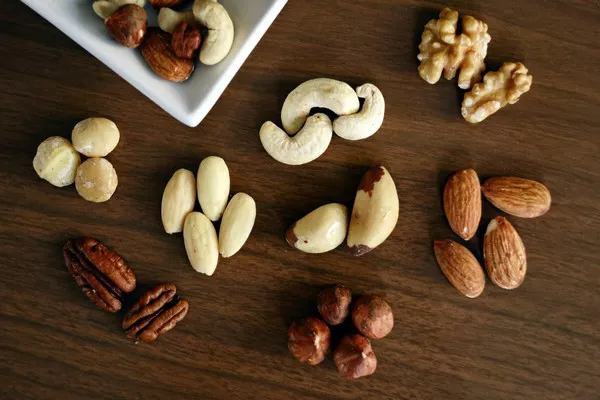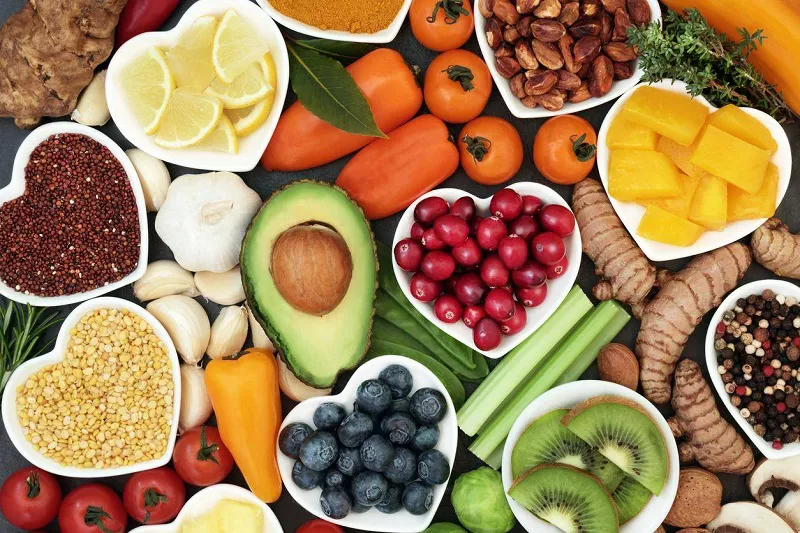In the ever-evolving landscape of nutritional supplements, pea protein isolate has emerged as a potent and versatile player, particularly in the realm of plant-based protein. This comprehensive exploration seeks to unravel the intricacies of pea protein isolate, delving into its origins, nutritional profile, and the diverse ways it has become a cornerstone for individuals seeking a high-quality, plant-derived protein source. Whether you’re a fitness enthusiast, a vegan, or someone simply curious about alternative protein options, understanding what pea protein isolate is and its transformative potential is crucial for making informed decisions in enhancing your dietary protein intake.
The Genesis of Pea Protein Isolate
Pea protein isolate is derived from yellow peas, specifically Pisum sativum, a leguminous plant. Unlike whole peas or pea flour, which contain higher levels of carbohydrates and fiber, pea protein isolate undergoes a meticulous extraction process to isolate the protein content. This process typically involves removing the starch and fiber, resulting in a concentrated form of protein with minimal carbohydrates and fats. The result is a versatile and nutritionally dense product that aligns with the growing demand for plant-based protein alternatives.
Nutritional Powerhouse
The nutritional allure of pea protein isolate lies in its impressive amino acid profile. Amino acids are the building blocks of protein, and the body requires a balance of essential and non-essential amino acids for various physiological functions. Pea protein isolate stands out for being a rich source of essential amino acids, including branched-chain amino acids (BCAAs) like leucine, isoleucine, and valine. These BCAAs play a pivotal role in muscle protein synthesis, making pea protein isolate an attractive option for those looking to support muscle growth, repair, and overall protein metabolism.
A Plant-Powered Solution
The surge in plant-based diets and the increasing awareness of the environmental impact of animal agriculture have fueled the popularity of plant-derived protein sources. Pea protein isolate, with its robust nutritional profile and sustainable sourcing, has become a linchpin in meeting the protein needs of individuals adhering to vegetarian, vegan, or flexitarian lifestyles. As more people seek alternatives to traditional animal-based proteins, pea protein isolate has established itself as a viable and accessible solution that aligns with diverse dietary preferences.
Digestibility and Absorption
One of the notable features of pea protein isolate is its digestibility, a crucial factor in determining the efficiency of protein absorption by the body. Unlike some protein sources that may cause digestive discomfort, pea protein isolate is generally well-tolerated. The gentle impact on the gastrointestinal system makes it suitable for individuals with sensitivities or digestive issues. Additionally, the bioavailability of pea protein isolate—the extent to which the body can absorb and utilize the protein—is comparable to many animal-based protein sources, further reinforcing its efficacy as a plant-powered protein solution.
Allergen-Friendly
The prevalence of food allergies and intolerances has prompted a growing demand for allergen-friendly protein options. Pea protein isolate, being free from common allergens such as dairy, soy, and gluten, emerges as a versatile choice for individuals with dietary restrictions or sensitivities. Its hypoallergenic nature not only broadens the accessibility of protein supplementation but also makes it an inclusive option for those navigating the landscape of allergen-conscious nutrition.
Muscle Building and Repair
In the realm of fitness and muscle-centric goals, pea protein isolate has gained traction as a valuable tool for athletes and fitness enthusiasts. Its rich amino acid profile, particularly its BCAA content, positions pea protein isolate as an effective supplement for muscle building and repair. Studies have indicated that pea protein isolate can stimulate muscle protein synthesis to a similar extent as whey protein, a gold standard in the realm of protein supplementation. This makes pea protein isolate a compelling option for those seeking plant-based alternatives to support their muscle-centric fitness endeavors.
Weight Management Support
Beyond muscle-centric goals, pea protein isolate plays a role in weight management and satiety. Protein, known for its ability to induce feelings of fullness and reduce appetite, is a crucial component in weight loss or maintenance efforts. Pea protein isolate, with its protein-dense composition, provides a satiating effect that can contribute to overall calorie control. This attribute, combined with its low-calorie and low-fat nature, positions pea protein isolate as a strategic component in dietary plans aimed at achieving and sustaining a healthy body weight.
Cholesterol and Heart Health
Cardiovascular health is a paramount consideration in overall well-being, and pea protein isolate offers cardiovascular benefits that make it a heart-friendly protein source. Studies have suggested that pea protein may have a positive impact on cholesterol levels by helping to lower LDL (low-density lipoprotein) cholesterol, often referred to as “bad” cholesterol. The cholesterol-lowering effect is attributed to bioactive compounds present in peas, making pea protein isolate not only a protein source but also a potential ally in promoting heart health.
Blood Pressure Regulation
Maintaining optimal blood pressure is crucial for cardiovascular health, and pea protein isolate may contribute to blood pressure regulation. Peptides derived from pea protein have demonstrated potential antihypertensive effects in some studies. These peptides are believed to inhibit enzymes that contribute to elevated blood pressure, showcasing the multifaceted benefits of pea protein isolate beyond its role as a muscle-supporting and satiating protein source.
Balancing Blood Sugar
For individuals managing blood sugar levels, the glycemic impact of dietary choices is a critical consideration. Pea protein isolate has shown promise in contributing to glycemic control. Studies indicate that pea protein may help regulate blood sugar levels by slowing the absorption of glucose during digestion. This can be particularly beneficial for individuals with diabetes or those seeking dietary strategies to manage insulin sensitivity.
Antioxidant Properties
Peas, the source of pea protein isolate, are rich in antioxidants, and these bioactive compounds carry over into the isolate. Antioxidants play a crucial role in neutralizing free radicals and oxidative stress, contributing to cellular defense and overall health. The inclusion of pea protein isolate in one’s diet introduces not only a protein source but also a potential source of antioxidant support, further enhancing its holistic impact on well-being.
Environmental Sustainability
The environmental impact of dietary choices has become a significant consideration for individuals seeking sustainable lifestyles. Pea protein isolate stands out as an eco-friendly protein source with a relatively low environmental footprint. Peas are nitrogen-fixing plants, meaning they can draw nitrogen from the air and convert it into a form that enriches the soil. This natural ability reduces the need for synthetic nitrogen fertilizers, contributing to soil health and sustainability. Choosing pea protein isolate aligns with environmentally conscious consumers looking to make protein choices that are in harmony with the planet.
Innovation in Culinary Applications
The culinary versatility of pea protein isolate expands its appeal beyond traditional protein shakes. As the demand for plant-based alternatives grows, food innovators have embraced pea protein isolate as a key ingredient in a variety of products. From plant-based burgers and sausages to dairy-free ice creams and baked goods, pea protein isolate serves as a foundation for creating flavorful and protein-rich foods. Its neutral taste and ability to blend seamlessly into recipes make it a go-to choice for chefs and home cooks seeking to enhance the nutritional profile of their culinary creations.
Considerations and Caution
While pea protein isolate offers a multitude of benefits, it’s essential to approach its consumption with consideration for individual needs and health status. Some individuals may be allergic to peas or legumes, and in such cases, caution is advised. Additionally, as with any dietary supplement, moderation is key. Like all protein sources, pea protein isolate is most beneficial when part of a well-rounded and varied diet. Consulting with healthcare professionals or registered dietitians can provide personalized guidance, ensuring that individuals can incorporate pea protein isolate in a manner that aligns with their unique nutritional requirements.
The Future of Pea Protein Isolate
As we navigate the future of nutrition and dietary choices, pea protein isolate is poised to play an increasingly significant role. Its rise in popularity aligns with broader shifts towards plant-based living, sustainability, and a holistic approach to well-being. The versatility, nutritional density, and eco-friendly footprint of pea protein isolate position it as a protein source with enduring appeal. Whether contributing to muscle-centric fitness goals, supporting cardiovascular health, or enriching culinary experiences, pea protein isolate leaves an indelible mark on the nutritional landscape, ushering in a plant-powered legacy that resonates with individuals and the planet alike.
[inline_related_posts title=”You Might Be Interested In” title_align=”left” style=”list” number=”6″ align=”none” ids=”3846,3776,3773″ by=”categories” orderby=”rand” order=”DESC” hide_thumb=”no” thumb_right=”no” views=”no” date=”yes” grid_columns=”2″ post_type=”” tax=””]
































